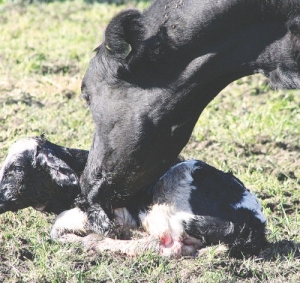The strategy document is called ‘Animal Welfare Matters’.
Says Wills, “New Zealand’s farmers are world leaders in integrating animal health and welfare into their farm management planning, something recognised by the World Society for the Protection of Animals (WSPA).
“The strategy reflects Federated Farmers own policy on animal welfare. It matters how animals are treated and farmers have a moral and ethical responsibility to ensure requirements are adhered to.
“Federated Farmers agrees the deliberate neglect or ill treatment of animals is not acceptable [and] makes neither farming nor commercial sense – quite the opposite in fact.
“Ill-treated farm animals do not produce well or gain condition, so good animal welfare is good for business, just as bad animal welfare is self-destructive.”
The strategy was launched this month by the Minister for Primary Industries Nathan Guy to set out a high level policy on how we treat animals.
“The strategy ‘Animal Welfare Matters’ sets out a formal foundation for New Zealand’s animal welfare legislation and policy,” says Guy. “It says that it matters how animals are treated, and that we have responsibilities toward animals. It also says that using animals for activities like farming and racing is acceptable as long as it is humane.”
The strategy emphasises four matters: better planning to prevent animal welfare problems; better animal husbandry, science and technology; clear expectations and sanctions, and help for people to comply; and measuring animal welfare performance.
“Animals matter to us personally. New Zealand earns about $20 billion a year by exporting animal products, such as meat, milk and wool,” says Guy. “Part of why we are so successful internationally is our world-leading reputation for animal welfare. It is vital that we recognise and protect that.
The new strategy document will soon be followed by legislation to update the Animal Welfare Act. It follows public consultation last year that drew at least 2000 public submissions.
Wills says Federated Farmers cannot rest on its laurels and must help educate for and improve the animal husbandry skills of farmers, farm workers, small holders and lifestyle block owners.
“As an organisation, Federated Farmers is proactive in educating our members about best practice and how to meet animal welfare requirements. This is achieved through member services, working with the industry good bodies and with the Ministry for Primary Industries.”
Wills says current policy works in that animal welfare compliance and enforcement must be fit for purpose. It must also include sector groups and government working together.
“We see this as a key part of the strategy where Federated Farmers can provide effective on-the-ground support to farmers. Our current [understanding] with the MPI outlines core responsibilities during an animal welfare investigation. It is important that both organisations continue to collaborate to assist farmers in need.
“With animal welfare, a strong scientific base is critical. Standards and codes of welfare must be supported by science-based reasoning and the strategy is strong on this.
Wills says Federated Farmers has developed its own adverse events policy and is a key member of the National Animal Welfare Emergency Management committee.
The New Zealand Animal Welfare Strategy is available at http://www.mpi.govt.nz/biosecurity-animal-welfare/animal-welfare/new-zealand-animal-welfare-strategy
















